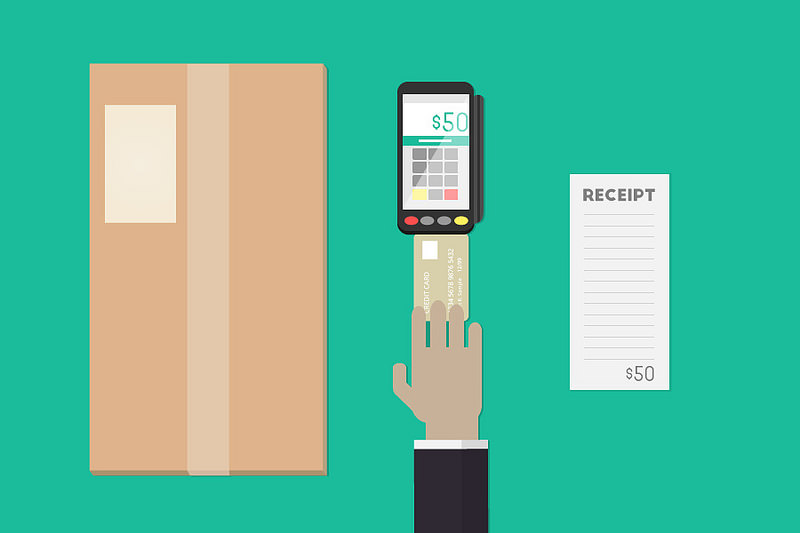Personal Development, Business, Finance, and Investing for Everyone
An investment in knowledge always pays the best interest.
|
Before getting a credit card, you must familiarize yourself with the terminologies or so-called jargons of the trade and their meanings. Credit Card Any card, plate, coupon or other credit device existing for the purpose of obtaining money, goods or services on credit. Survey The Statement Terms and Conditions Also known as the “agreement,” which contains the rules governing the issuance and use of the credit card. By signing and/ or using the card, you confirm that you have read, understood, and accepted the Terms and Conditions. Credit Limit The maximum total amount for purchases, cash advances, balance transfers, and finance charges, which may be charged on your credit card. Grace Period This is the window of time when you are allowed to pay your credit card bill without having to pay interest. This is not an extension of payment due date, but the period that you have to pay before interest charges apply to new balances. Conditions of credit card issuers vary in granting grace periods. Total Amount Due Total amount you owe, inclusive of purchases, cash advances, finance charges, penalties, fees, and many others, as of the statement date. Minimum Amount Due Least amount you need to pay on or before the Payment Due Date to keep your account from going into default. This is the sum of: a) total outstanding balance (excluding purchases on installment) multiplied by the required payment percentage; b) monthly installment due, if any; c) any amount in excess of your credit limit; and d) all past due amounts. Finance Charges Includes interest, fees, service charges, discounts, and such other charges incident to the extension of credit. Simple Annual Rate Is the uniform percentage which represents the ratio between the finance charge and the amount to be financed under the assumption that the loan is payable in one year with single payment upon maturity and there are no up-front deductions to principal. Figure Out The Fees Annual Fee The amount you pay for owning and using the credit card. It varies depending on the type of card you choose and is added to your statement of account every anniversary date. Balance Transfer Fee Imposed each time you transfer your balance from one of your credit cards to another. Service Fee for Foreign Currency Transactions Charged to you for transactions made outside the Philippines or online transactions in foreign currency. This is usually equivalent to the converted amount representing the Bank’s service fee and any assessment fee(s) charged by MasterCard/Visa/JCP and other card networks. Cash Advance Fee Charged to you each time you use the card to withdraw cash. This typically ranges from 3% to 5% of the total cash advance or a certain amount as agreed upon, whichever is higher. In addition to the cash advance fee, some card issuers charge interest or finance charge on the cash advance amount computed from the date of the availment up to your billing date or when cash advance amount is not paid on due date. Gambling and Gaming Fee Charged to you on gaming/gambling transactions and/or transactions made at gaming/gambling establishments, including the placement of wagers, purchase of lottery tickets or other values in conjunction with any gaming or gambling activities. Overlimit Fee Charged to you if your total amount due exceed your approved credit limit on your cut-off date. Installment Pre-termination Fee Charged to you for each installment plan transaction pre-terminated. Cancellation Processing Fee Charged to you for each balance transfer or balance conversion pre-terminated. Card Replacement Fee Charged to you for the replacement of lost, stolen or damaged card. Late Payment Fee Charged to your next billing statement if you fail to pay at least the minimum amount due on or before the payment due date. Some issuers charge a fixed amount while others charge a percentage of the minimum payment (e.g. 3% to 5%). Payment Processing/Multiple Payment Fee The amount charged for each payment made more than the maximum number of times allowed per month (usually 3 to 4 times per month). This usually applies to payments made in all payment centers, except the credit card issuers’ branches, ATMs, online and phone banking. Returned Check Fee Charged for check payments which are returned due to reasons such as but not limited to insufficient funds, closed accounts, unsecured deposit, or any other reasons for dishonor. Refund Fee Charged to you for each request of refund for overpayment, instead of charging over to the next billing. Sales Slip/Invoice Retrieval Fee Charged to you for each sales slip/invoice retrieved upon your request. Statement of Account (SOA) Retrieval Fee Charged to you for each request of fax or mail copy of your old statement of account (usually beyond 3 months from current SOA) Attorney’s Fees and Liquidated Damages In case of default in payment, this is the amount you pay for the total cost of collection and/or attorney’s fees and litigation, and judicial expenses. This is in addition to penalty and interest charges. Certification Fee The amount you pay for certification requests (e.g. full settlement account, good credit standing, card replacement issuance). Account Maintenance/Closed Card Account Service Fee Charged to you for closed card accounts with overpayments until the credit balance is zeroed out. Consider the Choices Cash Advance
Is a cash loan from your credit card through an ATM or over the counter. The interest rate for the cash advance is usually higher than the Annual Percentage Rate (APR) for purchases. In addition to the interest you will pay on the amount advanced, you are also charged a cash advance fee. Your cash advance limit is set as a percentage of your credit limit. At any given time, the total of your cash advances and any interest on them cannot exceed your cash advance limit. Cash advance gives you easy cash access but is a very expensive form of credit. Balance Transfer The process of moving your unpaid credit card debt from one issuer to another with whom you also own a card. Card issuers offer lower rates to encourage cardholders to transfer their outstanding balances to another issuer to avail of lower finance charges. This is one option if you are having problem paying your credit card debt. It lets you save on much higher monthly finance charges, hence a smart way to lower the cost of your outstanding balance. However, it also comes with a fee and the lower monthly rate offerred may be good only for a limited period. Ask how long these rates are effective to make sure you do not end up paying the same or higher monthly finance charges. Installment Payment Facility This facility allows you to purchase selected goods and services from merchants using your card and to pay for the same, together with applicable interest and other fees or at a zero percent rate, in equal monthly payments. In certain instances or promotions, issuer or card company may allow you to convert cash advance transactions, existing balances on the card or balances on credit cards from other issuers into installment transactions, which shall be payable in equal monthly payments subject to the applicable interest and other fees. Source: Financial Consumer Protection Department (BSP)
0 Comments
Leave a Reply. |
PLACE YOUR ADS HERE YOUR PAYDAY REMINDER FEATURED PARTNER FEATURED PROMOTIONS FEATURED MENTIONS PLACE YOUR ADS HERE PLACE YOUR ADS HERE For more updates about Personal Development, Financial and Investment Education. Join and Subscribe to my Newsletter. It's FREE! ABOUT THE BLOGGERHi, I'm Ralph Gregore Masalihit! An RFP Graduate (Registered Financial Planner Institute - Philippines). A Personal Finance Advocate. An I.T. by Profession. An Investor. Business Minded. An Introvert. A Photography Enthusiast. A Travel and Personal Finance Blogger (Lakbay Diwa and Kuripot Pinoy). Currently, I'm working my way toward time and financial freedom. PLACE YOUR ADS HERE Follow me on |












